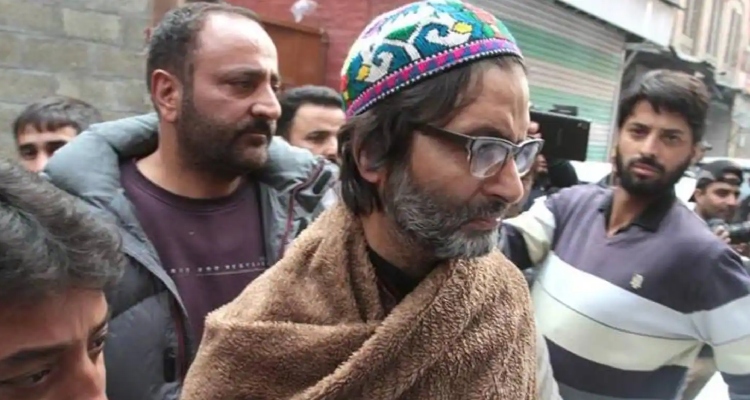
The Supreme Court on Thursday proposed setting up a courtroom in a Delhi jail for the trial of Kashmiri separatist leader Yasin Malik.
The case has been adjourned to November 28, with instructions for the CBI to amend its petition and include other accused as respondents.
The suggestion came in response to strong objections from the Central Bureau of Investigation against a Jammu court’s decision to allow Malik’s physical presence during the trial connected to the 1989 killing of four Air Force personnel.
Justice A.S. Oka, addressing the concerns, emphasized the importance of a fair trial, even for individuals accused of grave crimes. “A fair trial was afforded even to 26/11 terrorist Ajmal Kasab,” he remarked, countering Solicitor General Tushar Mehta’s assertion that Malik was not “just another terrorist.”
Solicitor General Mehta argued that Malik was exploiting the judicial process by choosing to cross-examine witnesses personally instead of appointing a lawyer. He also highlighted Malik’s alleged links with Hafiz Saeed, the founder of Lashkar-e-Taiba, and raised security concerns about transporting him to Jammu.
The Solicitor General warned that Malik’s physical presence posed significant risks, citing the recent killing of a witness in the case. He assured the court that virtual connectivity in Jammu was reliable, suggesting it as an alternative for Malik’s participation in the trial.
Justice Oka, however, proposed the idea of a jail-based courtroom in Delhi to address both security and fair trial concerns. Solicitor General Mehta raised no objection to the suggestion.
The Bench also emphasized the need for robust security arrangements for witnesses in the case, requesting detailed information on their protection.
The court recalled an incident from July last year, when Malik was brought to the Supreme Court following a misinterpretation of a judicial order by Tihar Jail authorities. The incident sparked sharp criticism from the Bench.
Previously, the Supreme Court stayed the Jammu Special Court’s order permitting Malik’s physical presence at the trial for cross-examining witnesses.
This development underscores the judiciary’s effort to balance fair trial principles with security considerations in high-profile cases.
(Inputs By Sambhav Sharma)




